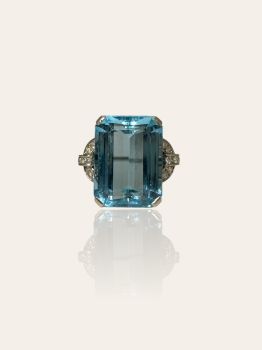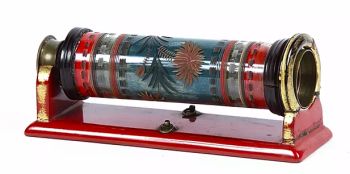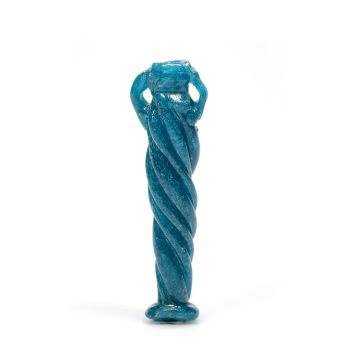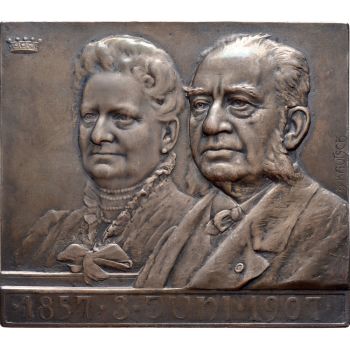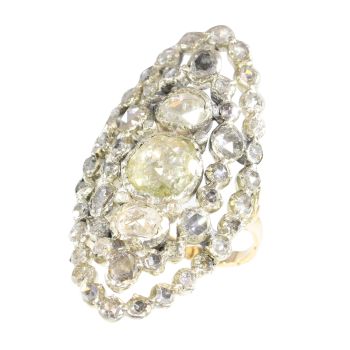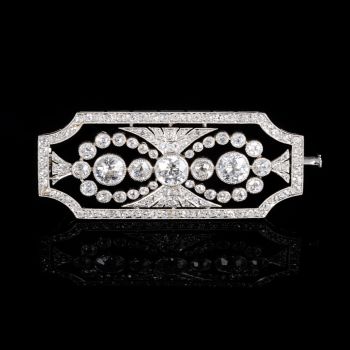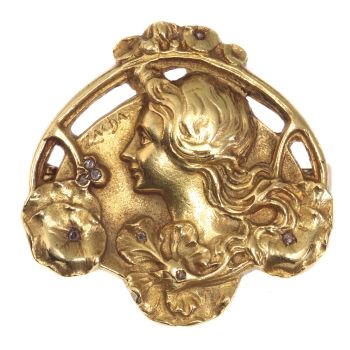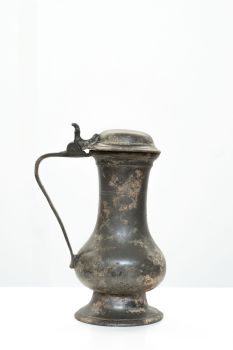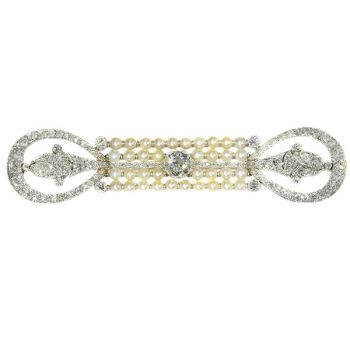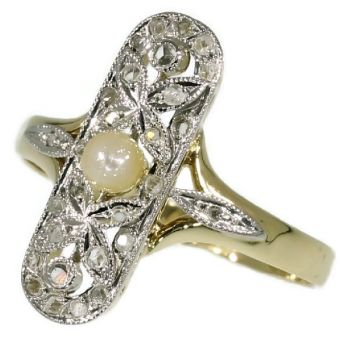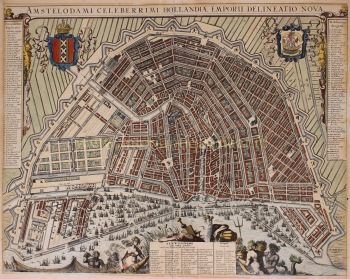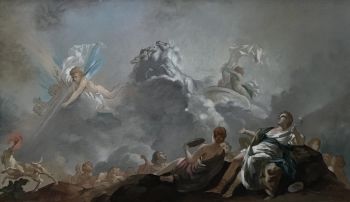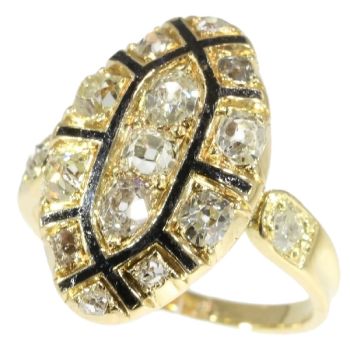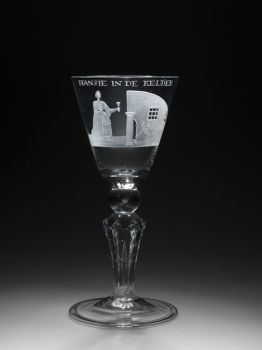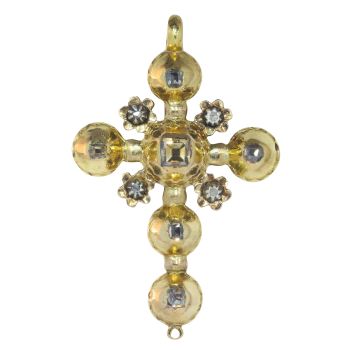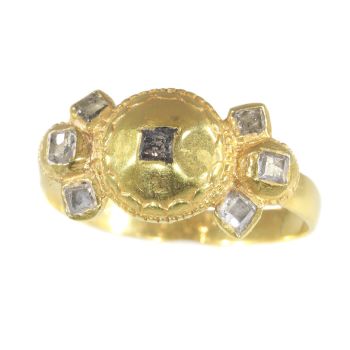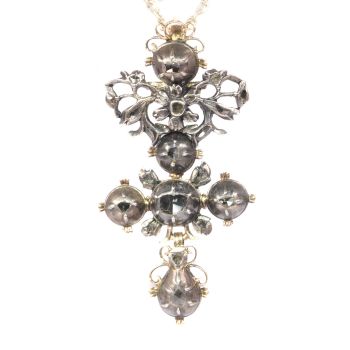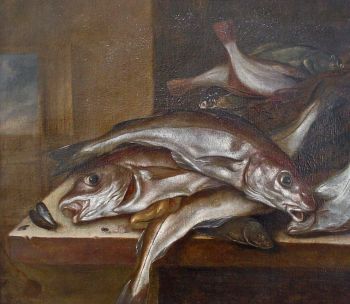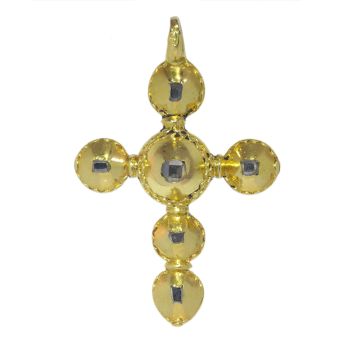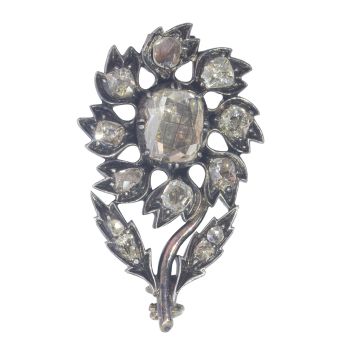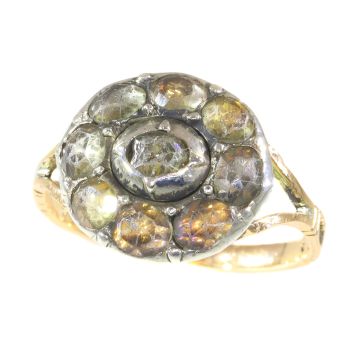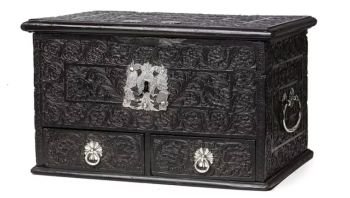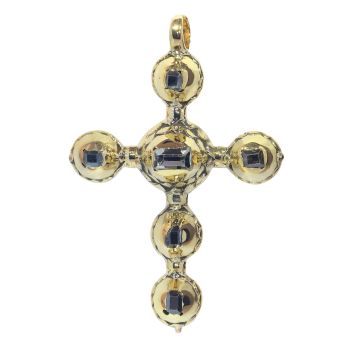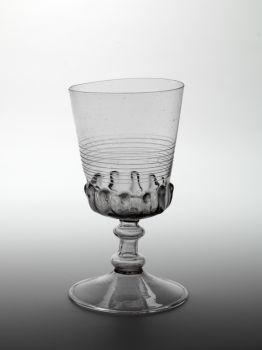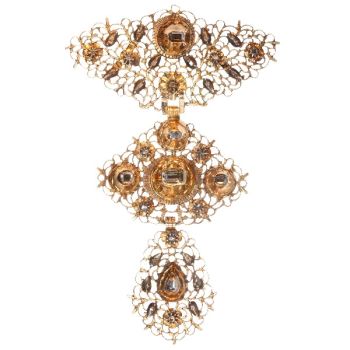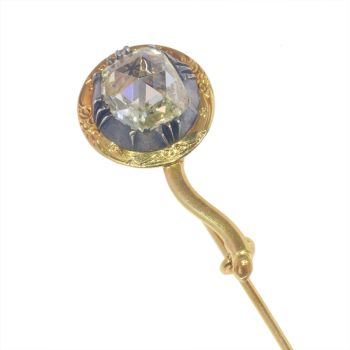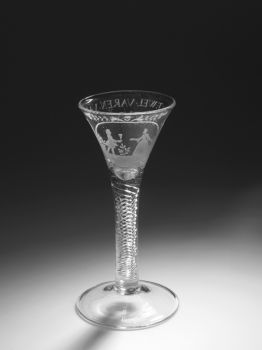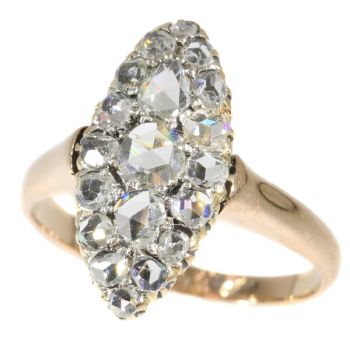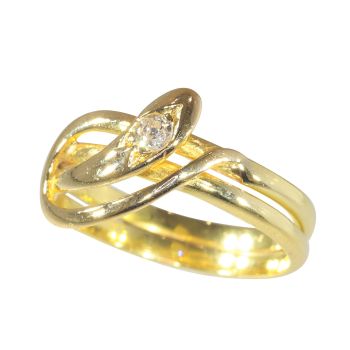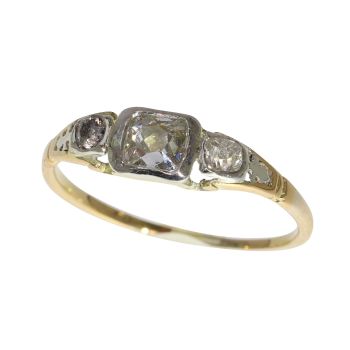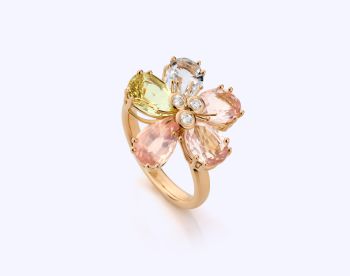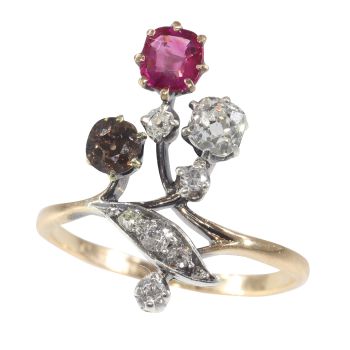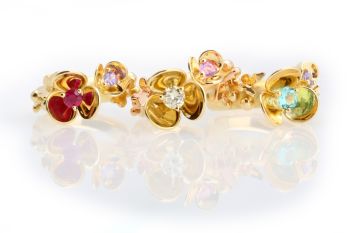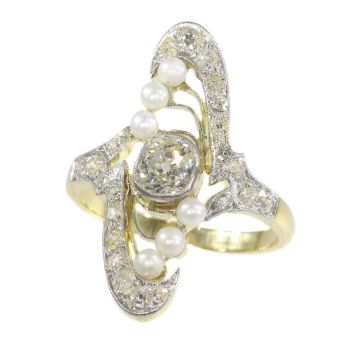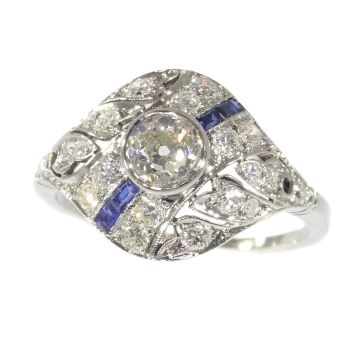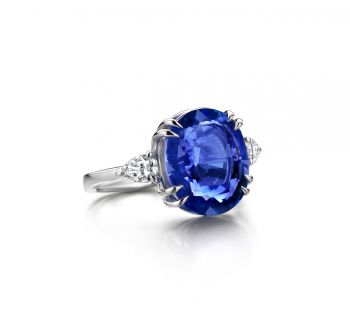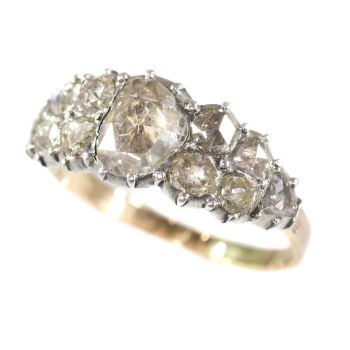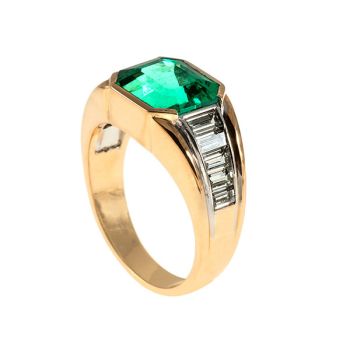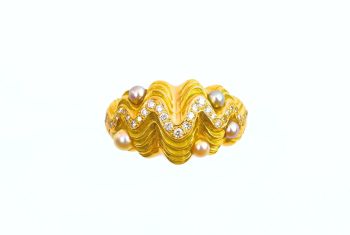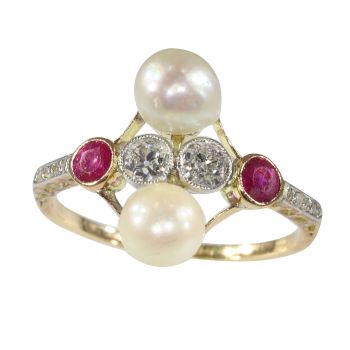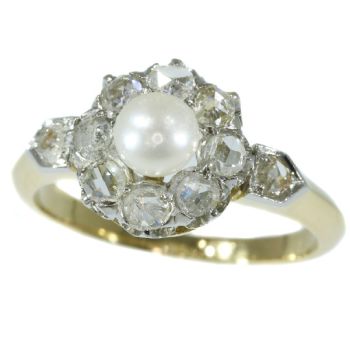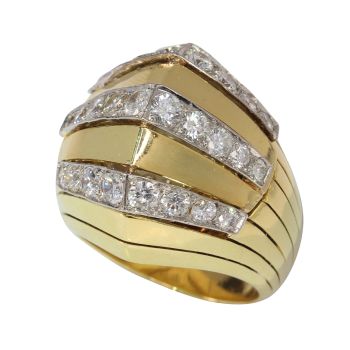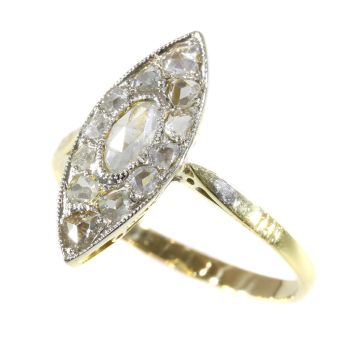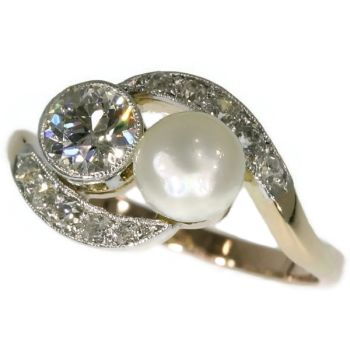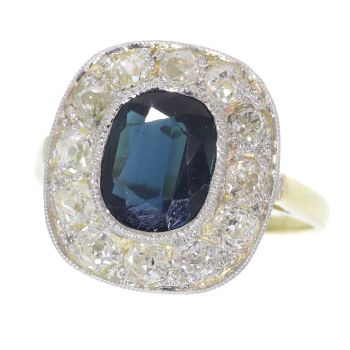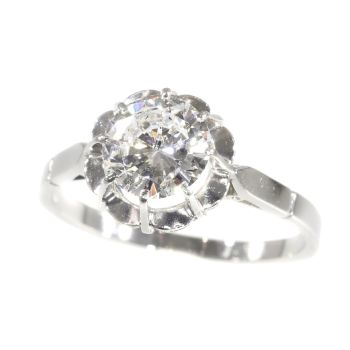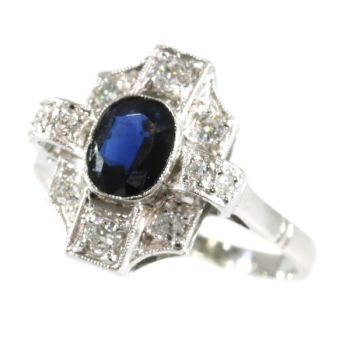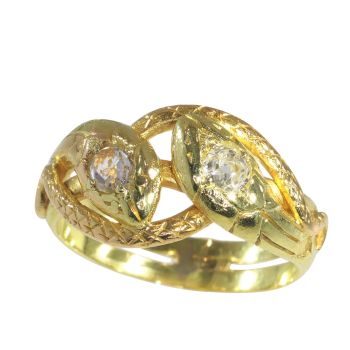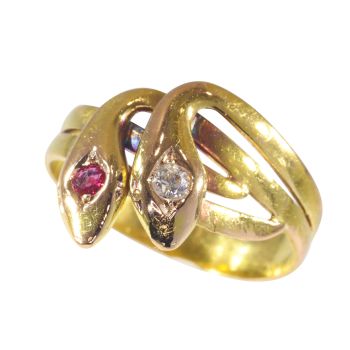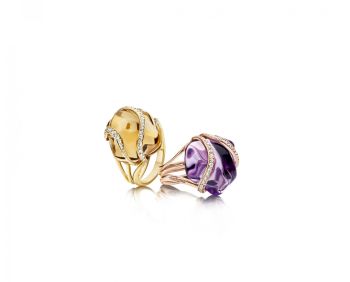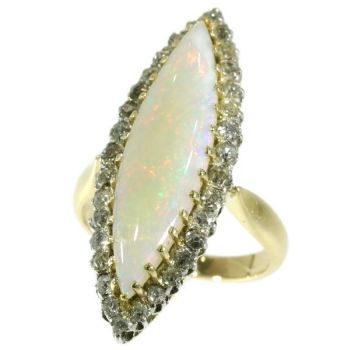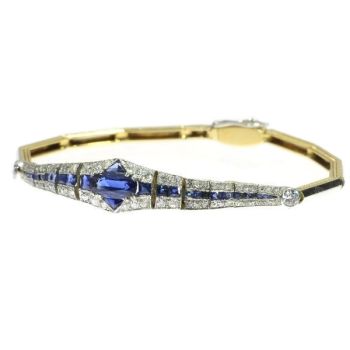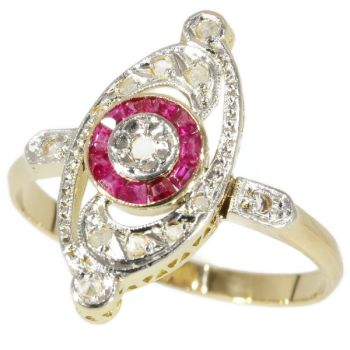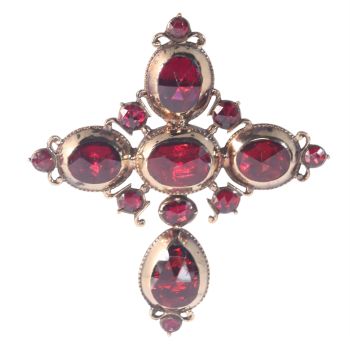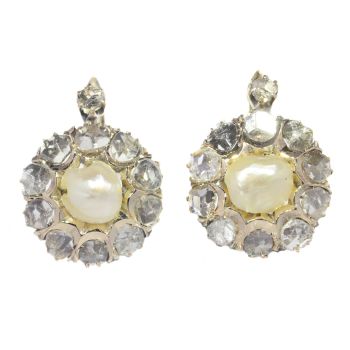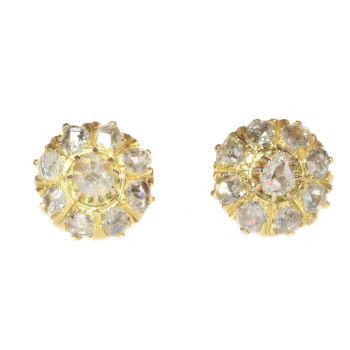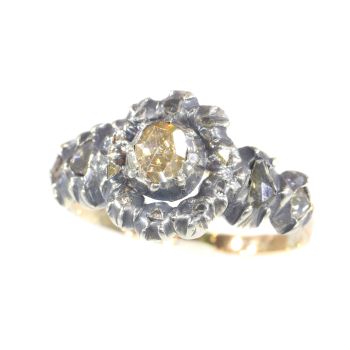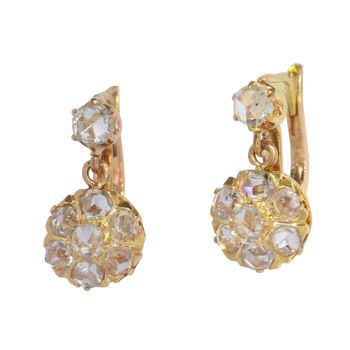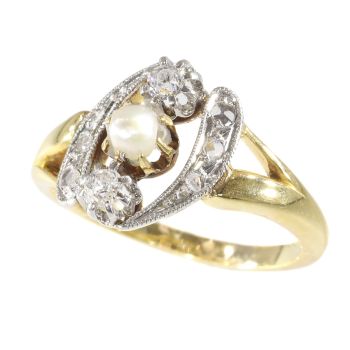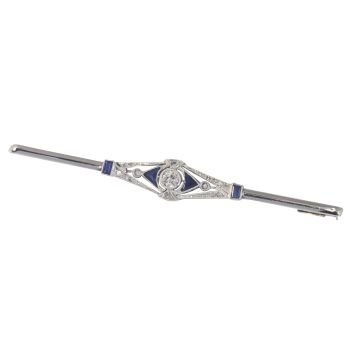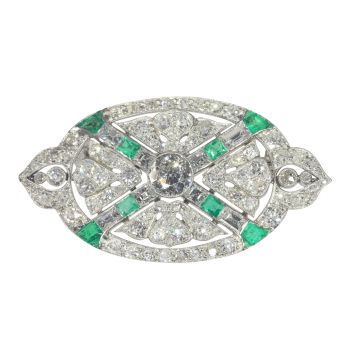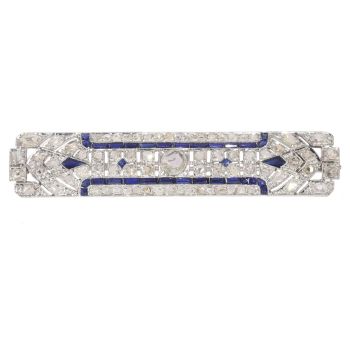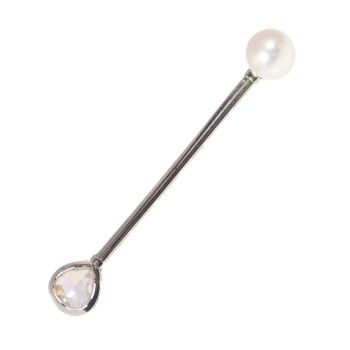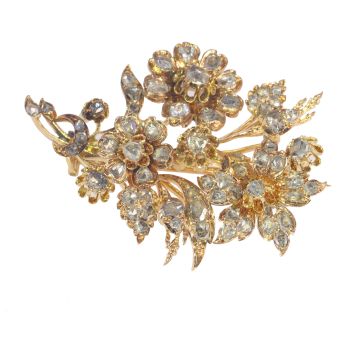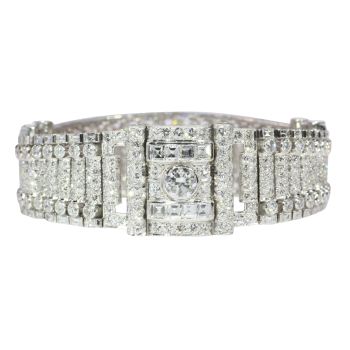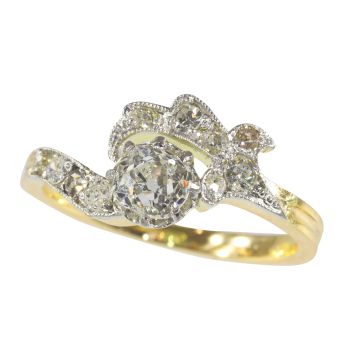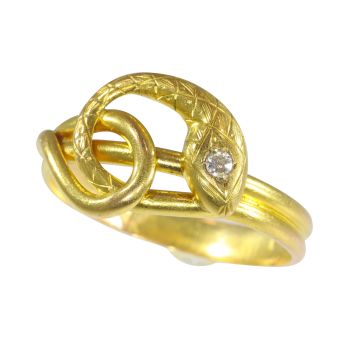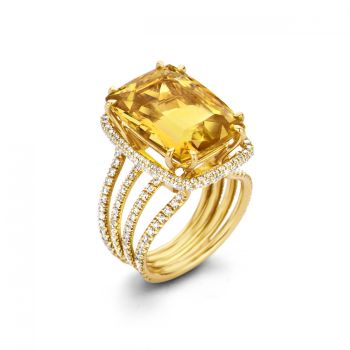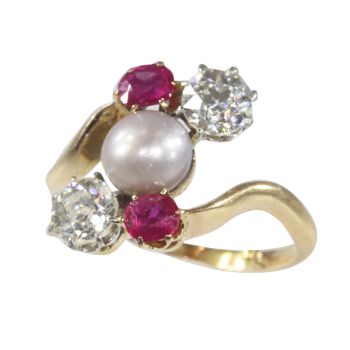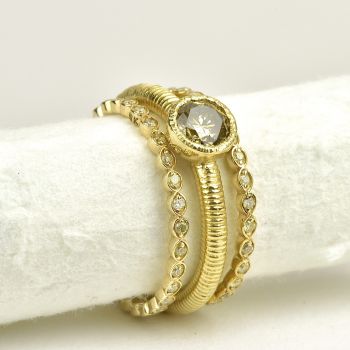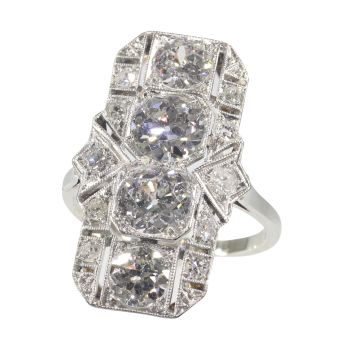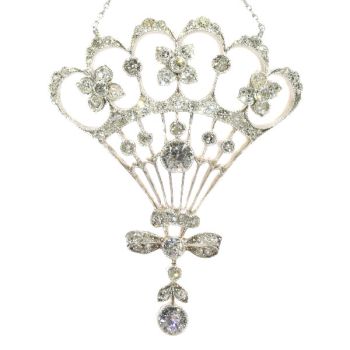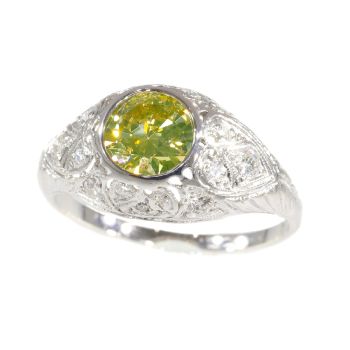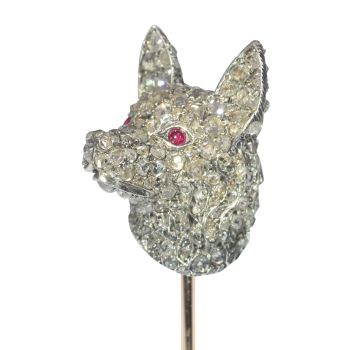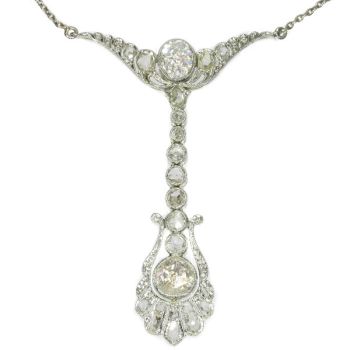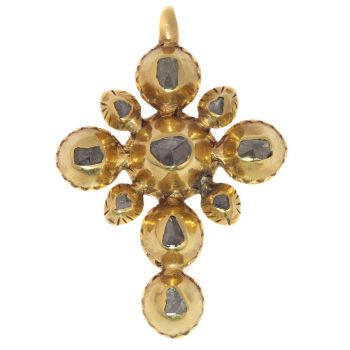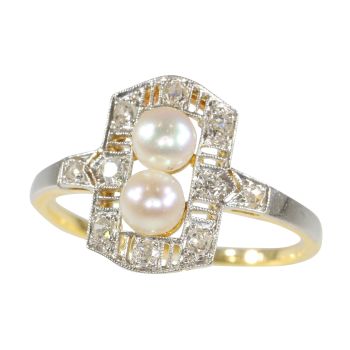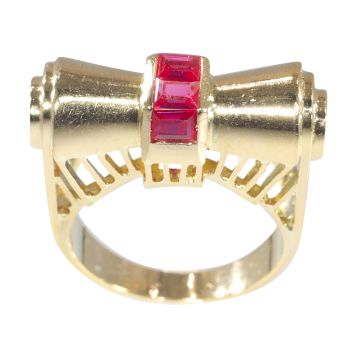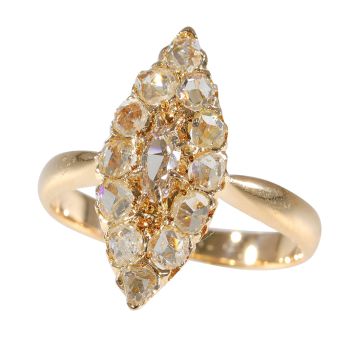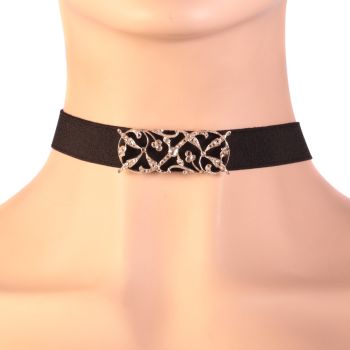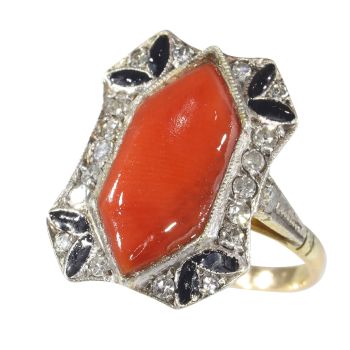Historical Baroque Diamond Ring from the 1680s 1680
Artista Sconosciuto
DiamantePietra preziosa
€ 9.250
Adin Fine Antique Jewellery
- A proposito di opere d'arte
This vintage antique ring from the 1680s exemplifies Baroque artistry with its dynamic movement and overt emotion. Crafted in warm yellow gold and silver, the ring features seven table cut rose cut diamonds set on foil to enhance their lustre. The topsection of the ring dates back to between 1650 and 1700, while the shank was replaced around 1840, evidenced by the horse head hallmark. This piece, with its rich history and intricate craftsmanship, is likely from France or Belgium. The combination ofBaroque style and the meticulous setting technique makes this ring a timeless treasure.
Antique jewelry object group
ring
Condition
very good condition
more info on our condition scale
Country of origin
France or Belgium (see explanation on hallmarks further in text)
Style
Baroque - Baroque is an artistic style prevalent from the late 16th century to the early 18th century in Europe. It is most often defined as "the dominant style of art in Europe between the Mannerist and Rococo eras, a style characterized by dynamicmovement, overt emotion and self-confident rhetoric".
See also: Baroque
more info on styles
Period
ca. 1680
Events & facts of this era, poetry of this era, fashion of this era.
Material 18K
warm yellow gold and silver (touchstone tested)
more info on precious metals
Technique
The rose cuts are set on foil. This is a special technique that was used to bring the lustre of the diamonds to its best quality.
Extra information
The main part of the ring (the top section) was crafted sometime between 1650 and 1700, as indicated by the diamond's cut. However, the shank was replaced around 1840, as evidenced by the horse head hallmark. Traces of this work can still be seen on theinside of the ring.
Diamonds
Seven table cut rose cut diamonds. We do not have the weight of the diamonds which is normal in our trade when it comes to rose cuts.
All diamonds we offer are screened by the I.J.G.C. for whether they are natural or synthetic, and all diamonds in this jewel are 100% guaranteed to be natural.
Birthstones
Diamond is the birthstone (or month stone) for April.
more info on birthstones
Hallmarks
The control mark here represents a horse’s head and was in use in Belgium from 1831 and in France from about 1838.
more info on hallmarks
Dimensions
band width top of ring 0,69 cm (0,27 inch)
see picture with a ruler in millimeters and inches
Weight
2,70 gram (1,74 dwt)
Ring size Continental EU: 58 & 18½ , Size USA: 8¼ , Size UK: Q
Resizing
Free resizing (only for extreme resizing we have to charge).
more info on ring sizes
Adin Reference Nº
24161-0031
Copyright photography
Adin, fine antique jewellery
Additional information
our latest acquisitions
jewelry glossary
wall of fame
visit us in Antwerp
subscribe to our mailinglist
- A proposito di opere artista
Può succedere che un artista o un creatore sia sconosciuto.
Alcune opere non sono determinate da chi sono state realizzate o sono state realizzate da (un gruppo di) artigiani. Esempi sono statue dell'antichità, mobili, specchi o firme non chiare o leggibili ma anche alcune opere non sono affatto firmate.
Inoltre puoi trovare la seguente descrizione:
•"Attribuito a …." A loro avviso probabilmente opera dell'artista, almeno in parte
•“Studio di ….” o “Officina di” A loro avviso un'opera eseguita nello studio o nella bottega dell'artista, eventualmente sotto la sua supervisione
•“Cerchio di…” A loro avviso un'opera del periodo dell'artista che mostra la sua influenza, strettamente legata all'artista ma non necessariamente al suo allievo
•"Stile di..." o "Seguace di..." A loro avviso un'opera eseguita nello stile dell'artista ma non necessariamente da un allievo; può essere contemporaneo o quasi contemporaneo
•“Modalità di…” A loro avviso un'opera nello stile dell'artista ma di epoca successiva
•"Dopo …." A loro avviso una copia (di qualsiasi data) di un'opera dell'artista
•“Firmato…”, “Datato…” o “Iscritto” A loro avviso l'opera è stata firmata/datata/inscritta dall'artista. L'aggiunta di un punto interrogativo indica un elemento di dubbio
•"Con firma....", "Con data...", "Con iscrizione..." o “Riporta firma/data/iscrizione” a loro avviso la firma/data/iscrizione è stata aggiunta da qualcuno diverso dall'artista
Sei interessato ad acquistare questa opera d'arte?
Artwork details
Related artworks
Artista Sconosciuto
Spilla in stile Art Déco antico1920
Prezzo su richiestaAns Hemke-Kuilboer Juwelier & Antiquair
1 - 4 / 12Artista Sconosciuto
Verre bécher «ZWISCHENGOLD» très rare.1730
Prezzo su richiestaPeter Korf de Gidts - Antiquairs
Artista Sconosciuto
Verre à boire Cristallo façon de Venise1600 - 1650
Prezzo su richiestaPeter Korf de Gidts - Antiquairs
Artista Sconosciuto
A superb Indonesian royal gem-set gold overlaid silver betel box19th century
Prezzo su richiestaZebregs & Röell - Fine Art - Antiques
1 - 4 / 24- 1 - 4 / 24
- 1 - 4 / 24
- 1 - 4 / 12








